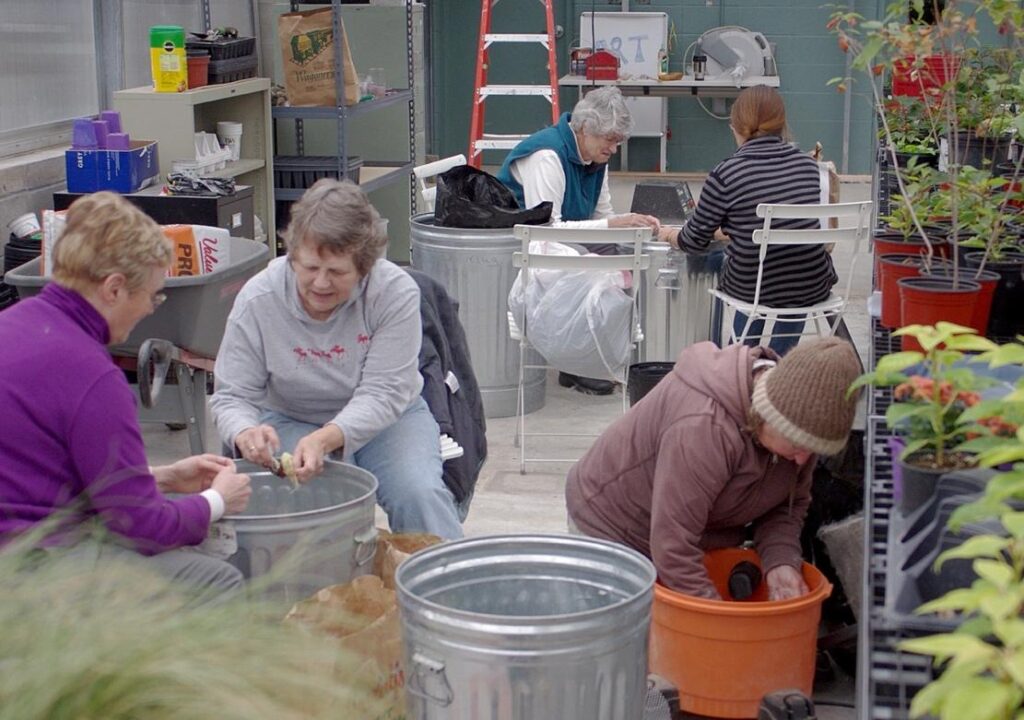
by Ilse Gebhard, KAWO member
In 2012 the national organization of Wild Ones: Native Plants, Natural Landscapes, joined forces with Monarch Joint Venture and Monarch Watch to Bring Back the Monarch in an effort to save America’s favorite butterfly, the Monarch.
The Bring Back the Monarch program’s goals are to restore 20 milkweed species to their native ranges throughout the United States. Since milkweeds are the only plants on which monarch females will lay eggs and the larvae will feed, it’s vitally necessary that we restore milkweeds and replace monarch habitats lost to development, roadside maintenance, and agriculture. And since adult monarchs need nectar to reproduce, this program also encourages the planting of nectar-producing native flowers.

Wild Ones’ efforts would be called Wild for Monarchs and its major emphasis was, and still is, to increase the number of milkweed plants across the US. Wild Ones members and the then 50 local chapters would work at the “plants-roots” level to educate the public and to plant local varieties of milkweed.
Locally, the Kalamazoo Area Chapter of Wild Ones set up a Wild for Monarchs Committee with many activities:

- Give presentations on monarchs and landscaping for butterflies with native plants to various organizations – mostly in Kalamazoo County but also in surrounding counties.
- Table at events with exhibit and handout materials – again mostly in Kalamazoo County but also in surrounding counties.
- Coordinate the collection of milkweed seeds and other native species.
- Prepare milkweed seed packets for distribution at events and locations like libraries and nature centers.
- Grow milkweeds for free distribution at events and for establishing Monarch Waystations on public and private locations.
- Help grow native plants for free distribution at events and for establishing Monarch Waystations on public and private locations.
- Establish or oversee the establishment and registration of Monarch Waystations at schools and public spaces.
- Advise individuals on planting Monarch Waystations on their property.
- Give Monarch Larva Monitoring Project workshops and coordinate the established sites.
We Need Your Help
Volunteers are needed to at least continue some of the activities of the Wild for Monarchs Committee. Please contact Co-Chairs Mike and Carol Klug at [email protected] if you are interested in helping.
Many of you have already planted milkweed and nectar plants in your yards and have registered your yards as Monarch Watch Waystations. If you haven’t, this would be a great time to do so at www.monarchwatch.org.
I would also encourage you to purchase a Monarch Watch Waystation sign and place it next to your native planting, letting people know that those “weeds” were planted on purpose to help monarchs and all the other pollinators.

with exhibit and handouts. Photo: Noel Ocen.

Montessori Magnet School in Kalamazoo. Photo: Donna Partin.

Photo: Kim Patrie


